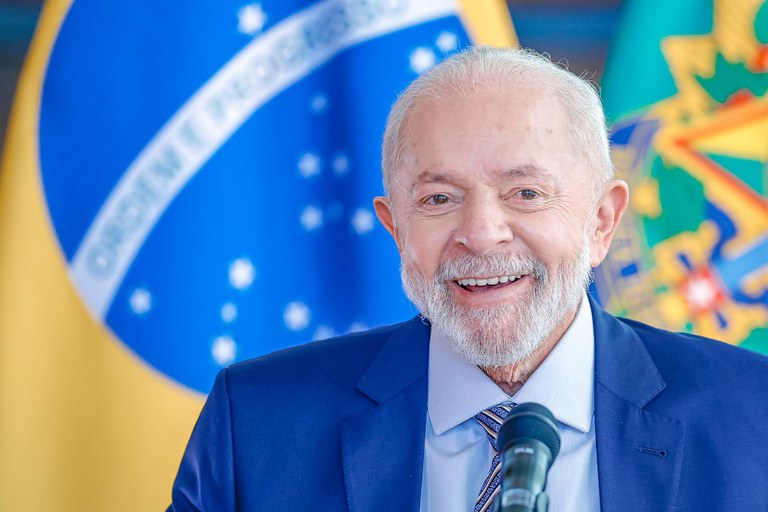Notícias
FOREIGN AFFAIRS
President Lula takes part in the 16th BRICS Summit between October 22 and 24

President Lula will be welcomed to Russia on October 22, where, following a welcoming ceremony, he will attend a dinner offered by President Vladimir Putin - Credit: Ricardo Stuckert / PR
President Luiz Inácio Lula da Silva will participate in the 16th BRICS Summit in Kazan, Russia, from October 22 to 24. Accompanied by a ministerial delegation, the president will attend the welcome ceremony on the 22nd, followed by a dinner hosted by Russian President Vladimir Putin for the attending heads of state.
On the sidelines of the Summit, President Lula will fulfill bilateral agendas with some of the leaders attending the meeting in Kazan. There is a declaration to be issued entitled Strengthening Multilateralism for Equitable Global Development and Security, with 106 paragraphs covering the progress achieved during the sectoral negotiations" – Eduardo Paes Saboia, the Brazilian Ministry of Foreign Affairs’ Secretary for Asia and the Pacific.
This will be the first BRICS Summit in which the five new members joining the bloc this year will participate: Egypt, Iran, the United Arab Emirates, Saudi Arabia, and Ethiopia. Until last year, BRICS comprised only Brazil, Russia, India, China, and South Africa. The agenda includes plenary sessions of the members on October 23, as well as a dinner with the guests who will participate in the segment on October 24, to which around 30 countries and international organizations have been invited by the Russian Government.
"On the sidelines of the Summit, President Lula will fulfill bilateral agendas with some of the leaders attending the meeting in Kazan. There is a declaration to be issued entitled Strengthening Multilateralism for Equitable Global Development and Security, with 106 paragraphs covering the progress achieved during the sectoral negotiations," highlighted the Secretary for Asia and the Pacific at Brazil’s Ministry of Foreign Affairs [Ministério das Relações Exteriores/MRE], Ambassador Eduardo Paes Saboia, during a press briefing on the morning of Monday, October 14.
During the summit, the leaders of the current ten member countries will discuss global issues such as the Middle East crisis and political and financial operations within the bloc. They will also receive reports on the work of the New Development Bank (NDB), the BRICS Business Council, and the Women's Business Alliance. In turn, the invited segment will discuss international cooperation issues towards sustainable and inclusive development.
The main topic of the Kazan meeting was the creation of the category of partner countries. "At the Johannesburg Summit, in 2023, new full members were incorporated; at that time, the Sherpa channel was commissioned to develop the partner category. This is what our work has been focused on this semester, on what the criteria for this modality are, and there is an expectation that, once this modality has been approved, there can be an announcement of the countries that would be invited to join this category," explained Saboia.
BRAZILIAN PRESIDENCY — Brazil will take on the BRICS presidency on January 1, 2025. The country has a tradition of productive presidencies focused on concrete results. "In 2014, during the Brazilian presidency of BRICS, the New Development Bank and the Contingent Reserve Arrangement were created — two of the bloc's greatest successes. So it will be an austere presidency, more focused on results," the Ambassador pointed out.
WHAT IT IS — BRICS is a partnership between the world's largest emerging economies: Brazil, Russia, India, China, South Africa, Egypt, Iran, the United Arab Emirates, Saudi Arabia, and Ethiopia. The first BRICS summit—before South Africa's incorporation—took place in 2009 in Yekaterinburg, Russia.
The dialog between the countries is based on three main pillars: cooperation in politics and security, financial and economic cooperation, and cultural and people-to-people cooperation. Around 150 meetings are held annually around these pillars. The main objective of the bloc, through cooperation, is to change the global governance system, with a reform of mechanisms such as the UN Security Council. In addition, alternatives to institutions such as the IMF and the IDB are introduced to promote emerging economies, as is the case of the NDB.